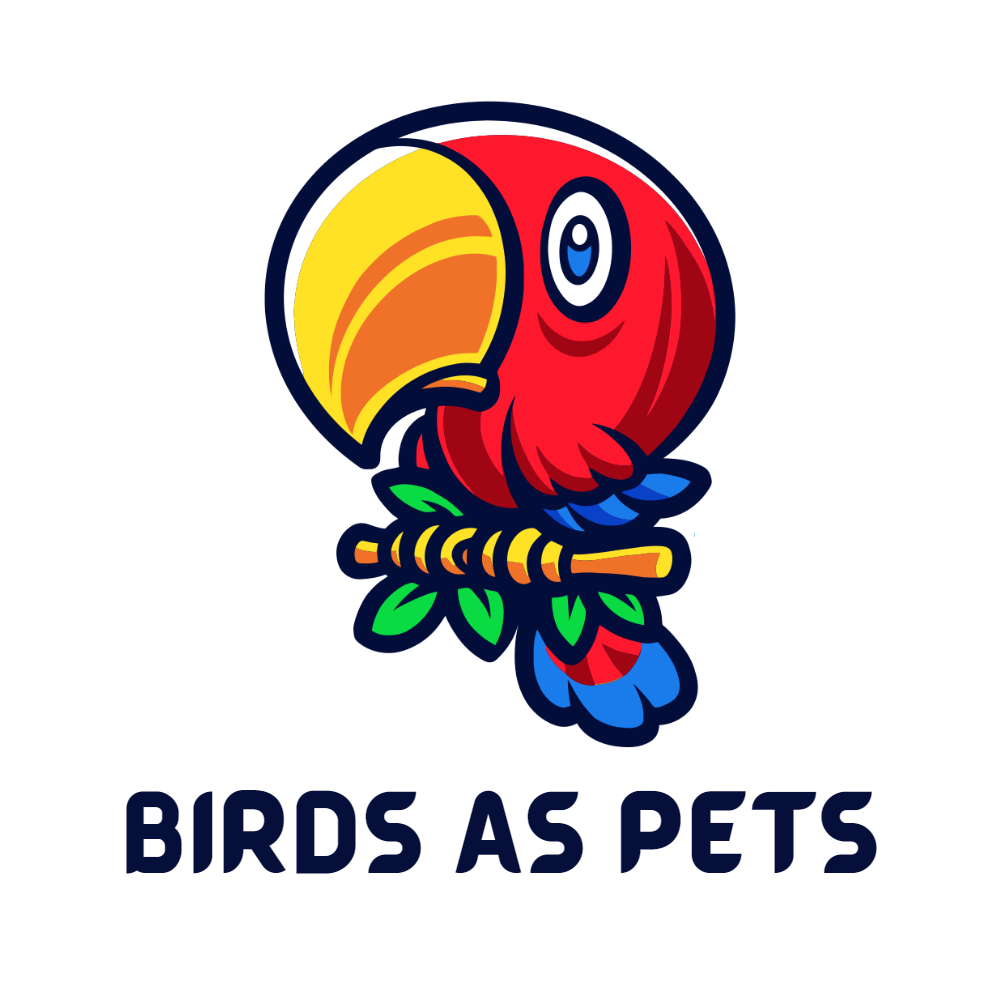If you’re considering adding a Jenday Conure to your family, this guide will provide essential information on their care, personality, and unique traits. These vibrant and engaging birds can make fantastic companions for the right person.
Quick Reference Table: Jenday Conure Facts
| Characteristic | Detail |
|---|---|
| Scientific Name | Aratinga jandaya |
| Adult Size | 12 inches (30 cm) in length |
| Average Lifespan | 25-30 years |
| Origin | South America (Brazil) |
| Temperament | Affectionate, Playful, Social |
| Noise Level | Moderate to loud |
Where Do Wild Jenday Conures Live?
Wild Jenday Conures are native to South America, primarily inhabiting the woodlands and savannas of northeastern Brazil. They often live in flocks and can be found feeding on fruits, seeds, and nuts in their natural habitat.
Jenday Conure Lifespan: How Long Do They Live as Pets?
With proper care, Jenday Conures can live 25-30 years in captivity. This long life expectancy requires a significant time commitment from their caregivers, who must provide a healthy diet, proper housing, and regular veterinary check-ups to ensure their well-being. Jenday Conures also need daily social interaction and mental stimulation to thrive.
Are Jenday Conures Good Pets?
Jenday Conures can make excellent pets for the right person, thanks to their affectionate, playful, and social nature. They form strong bonds with their caregivers and can even learn to mimic some sounds and perform tricks. However, they can be noisy and require a substantial time commitment, which may not suit all lifestyles.
Are Jenday Conures as Pets Good for Beginners?
Jenday Conures can be suitable for beginners, but their care requirements and noise levels should be considered before making a decision. New bird owners should research their needs thoroughly and be prepared to devote time and attention to their new feathered friend.
Are Jenday Conures Easy to Care For?
While Jenday Conures have specific care requirements, they are not exceptionally difficult to care for once you understand their needs. They require a balanced diet, proper housing, and regular veterinary care. Additionally, their social nature means they need daily interaction and mental stimulation to remain happy and healthy.
Jenday Conure Pros and Cons
| Pros | Cons |
|---|---|
| Affectionate and social | Noisy |
| Intelligent and trainable | Requires daily interaction |
| Beautiful appearance | Long life expectancy (time commitment) |
Jenday Conure Price and Costs
The price of a Jenday Conure can range from $400 to $800, depending on factors such as age, health, and breeder reputation. Initial setup costs, including a cage, toys, and accessories, can be around $300 to $500. Ongoing expenses, such as food, veterinary care, and supplies, should also be considered.
Where to Buy Jenday Conures
You can purchase Jenday Conures from reputable breeders, pet stores, or bird rescue organizations. Always research the seller’s reputation and ask for health records and references to ensure you’re adopting a healthy bird.
Caring for Jenday Conures
Jenday Conure Food
A balanced diet is essential for your Jenday Conure’s health. This should include a high-quality pellet mix, fresh fruits and vegetables, and occasional treats such as nuts and seeds. Avoid feeding them avocado, chocolate, or caffeine, as these can be toxic to birds.
Health and Common Issues
Some common health issues facing Jenday Conures include feather plucking, respiratory infections, and beak and feather disorders. Regular veterinary check-ups can help catch and address these issues early. A healthy diet, clean environment, and mental stimulation can also contribute to their overall well-being.
Signs of Healthy Jenday Conures
| Healthy | Sick |
|---|---|
| Bright eyes | Discharge around eyes or nostrils |
| Clean, smooth feathers | Ruffled, dirty, or plucked feathers |
| Active and alert | Lethargic or unresponsive |
| Normal droppings | Diarrhea or discolored droppings |
| Good appetite | Loss of appetite |
Jenday Conure Pet Insurance
Investing in pet insurance for your Jenday Conure can help cover unexpected veterinary expenses in case of illness or injury. Some insurance providers offer specialized plans for exotic birds, which may include coverage for routine check-ups, diagnostic tests, and treatment. Research different providers and policies to find the best fit for your bird’s needs.
Personality and Behavior
Jenday Conures are known for their playful, affectionate, and curious personalities. They enjoy spending time with their caregivers and can be quite entertaining with their antics. These intelligent birds can also be trained to perform tricks and may learn to mimic some sounds with patience and positive reinforcement.
Are Jenday Conures Social?
Yes, Jenday Conures are social creatures that thrive on interaction with their human caregivers and other birds. They form strong bonds and may become depressed or develop behavioral issues if they don’t receive adequate socialization and mental stimulation. It’s essential to provide daily interaction and enrichment for your Jenday Conure to keep them happy and healthy.
Speech and Noise of Jenday Conures
While Jenday Conures are not known for their talking abilities, they can learn to mimic some sounds and simple words with practice. These birds can be quite noisy, producing a variety of natural calls and vocalizations that may not be suitable for all living situations, such as apartments or shared housing.
Similar Species to Jenday Conures
Other species similar to Jenday Conures include the Sun Conure, Nanday Conure, and Dusky-headed Conure. These birds share many traits, such as colorful plumage, social behavior, and intelligence. However, each species has its unique characteristics and care requirements, so it’s essential to research and choose the right bird for your lifestyle and preferences.
Can Jenday Conures Live With Other Pets and Birds?
Jenday Conures can potentially coexist with other birds and pets, but caution and proper introductions are necessary. It’s best to house Jenday Conures with other similar-sized birds to minimize the risk of injury. Keep in mind that not all birds will get along, so it’s essential to monitor their interactions and be prepared to separate them if needed. Also, be cautious when introducing Jenday Conures to other pets, such as dogs or cats, to ensure the safety of all animals involved.
Are Jenday Conures Legal to Have as Pets?
In most places, Jenday Conures are legal to keep as pets. However, laws and regulations may vary depending on your location. It’s essential to research local laws and obtain any necessary permits before bringing a Jenday Conure into your home. Additionally, ensure that your bird is sourced legally and ethically from a reputable breeder or rescue organization.
FAQ for Jenday Conures as Pets
Do Jenday Conures talk?
Although not known for their talking abilities, Jenday Conures can learn to mimic some sounds and simple words with practice and patience.
Are Jenday Conures suitable for families with young kids?
Jenday Conures can be suitable for families with young kids, but adult supervision is recommended during interactions. Teach children how to handle and interact with the bird gently and respectfully to ensure a positive experience for all involved.
Can Jenday Conures be trained?
Yes, Jenday Conures are intelligent and can be trained to perform tricks and behaviors using positive reinforcement techniques, such as clicker training and treats.
How do I know what gender Jenday Conures are?
It can be difficult to determine the gender of Jenday Conures visually. The most accurate method is DNA sexing, which involves testing a small sample of blood or feathers. This test can be performed by your veterinarian or a specialized laboratory.
What is the lifespan of a Jenday Conure?
Jenday Conures can live for 25 to 30 years or more with proper care, including a balanced diet, regular veterinary check-ups, and a stimulating environment.
What kind of cage is best for a Jenday Conure?
A spacious cage with a minimum size of 24x24x36 inches is recommended for Jenday Conures. Ensure the cage has horizontal bars for climbing and is made of durable materials. Provide a variety of perches, toys, and enrichment items to keep your bird entertained and engaged.

